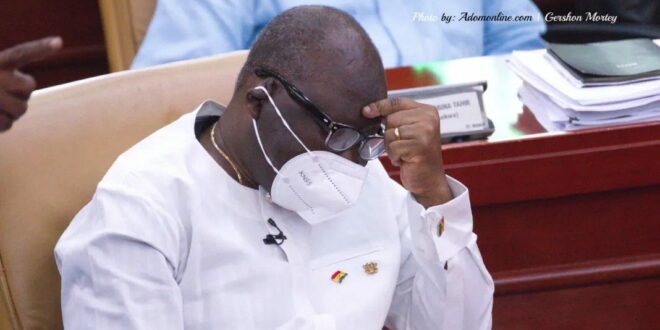More than half of Ghana’s overall earnings and more than 70% of the country’s tax receipts, according to Finance Minister Ken Ofori-Atta, are used to pay off the State’s debts.
On Monday, December 5, 2022, the Finance Minister stated that Ghana’s debt sustainability research showed that the country’s debt is unsustainable. This was said at the beginning of Ghana’s Domestic Debt Exchange Program.
“The Debt Sustainability Analysis (DSA) demonstrated unequivocally that Ghana’s public debt is unsustainable, and that the government may not be able to fully service its debt down the road if no action is taken. Indeed, debt servicing is now absorbing more than half of total government revenues and almost 70% of tax revenues, while our total public debt stock, including that of State-Owned Enterprises and all, exceeds 100% of our GDP. This is why we are today announcing the debt exchange which will help in restoring our capacity to service debt.”
The Minister said the reasons for the unbridled ballooning of the State’s debt included the “Covid-19 pandemic, rising global food prices, rising crude oil & energy prices; and the Russia-Ukraine war adversely affected Ghana’s macroeconomy, with spillovers to the financial sector.”
The Minister said, “The confluence of unfavorable external shocks has exposed Ghana to a jump in inflation, a significant devaluation in the value of the currency, and stress on the financing of the budget, which taken together have put our public debt on an unsustainable course.
The overall debt stock of the nation, according to Mr. Ofori-Atta, increased to GH 450 billion in 2022 from a total of GH 120 billion in 2017.
Ghana is now asking the International Monetary Fund for bailout assistance.
While the nation has frozen hiring in the public sector, it has also unveiled a debt restructuring plan to lighten the nation’s debt load.
Source: Ghanatodayonline.com
 Ghanatodayonline.com News, Politics, Health, Education & More
Ghanatodayonline.com News, Politics, Health, Education & More




